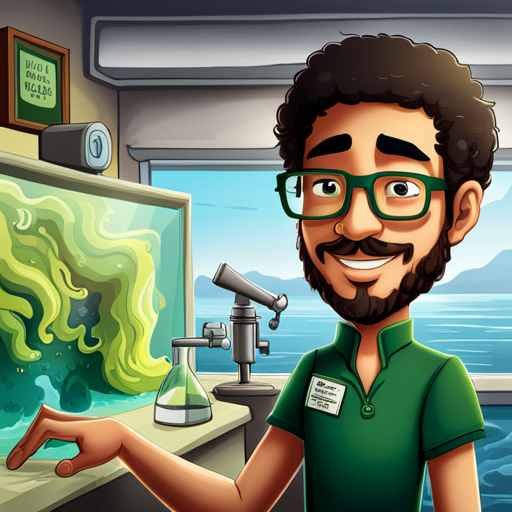Algae biofuel production has gained significant attention in recent years due to its potential as a sustainable alternative to fossil fuels. Algae, specifically microalgae, are microscopic plant-like organisms that use photosynthesis to convert sunlight into chemical energy. They can grow rapidly and produce high amounts of lipids (oils) that can be converted into biodiesel and other biofuels. However, several challenges must be addressed before algae biofuel production can become a viable option on a large scale. One of these challenges is the selection of suitable algal strains and the genetic engineering of these strains to optimize their growth and lipid production.
Selecting the right strain of algae is crucial for efficient biofuel production. Thousands of different species of microalgae exist, each with unique characteristics such as growth rate, lipid content, and tolerance to environmental conditions. Researchers have been screening various strains to identify those with the highest potential for biofuel production. The ideal strain would have rapid growth rates, high lipid content, and the ability to thrive in various environments, such as wastewater or saltwater.
However, finding a single strain with all these characteristics has proven challenging. Some strains may have high lipid content but slow growth rates, while others may grow quickly but produce low amounts of lipids. Additionally, many strains are sensitive to changes in environmental conditions, which can impact their growth and productivity.
To overcome these challenges, researchers have turned to genetic engineering as a means of optimizing algal strains for biofuel production. Genetic engineering involves the modification of an organism’s DNA to introduce or enhance specific traits. In the case of algae biofuel production, this could involve increasing the growth rate or lipid content of a particular strain.
Several genetic engineering techniques have been employed in algae research, including gene editing technologies such as CRISPR-Cas9. These tools allow scientists to precisely edit specific genes within an organism’s genome, enabling them to enhance desired traits or remove undesirable ones. For example, researchers have used CRISPR-Cas9 to increase the lipid content of certain algal strains by altering the expression of genes involved in lipid synthesis.
However, genetic engineering of algae is not without its challenges. One issue is the limited understanding of algal genomes and the complex interactions between genes and environmental factors that influence growth and lipid production. This makes it difficult to predict how specific genetic modifications will impact the overall performance of an engineered strain.
Another challenge is the potential for unintended consequences resulting from genetic modifications. For example, increasing lipid content may inadvertently slow down growth rates or make the algae more susceptible to disease or environmental stressors. Therefore, researchers must carefully consider the trade-offs associated with different genetic modifications and test their effects under various conditions.
Despite these challenges, advances in genetic engineering technologies and our understanding of algal biology hold promise for the future of algae biofuel production. As researchers continue to identify and optimize algal strains through strain selection and genetic engineering, the potential for large-scale, sustainable biofuel production from algae becomes more feasible.
In addition to biofuel production, genetically engineered algae can also be used to produce other valuable bioproducts such as pharmaceuticals, nutraceuticals, and specialty chemicals. The development of algal biorefineries that integrate biofuel production with the production of these high-value products could help improve the economic viability of algae-based industries and contribute to a more sustainable future.


